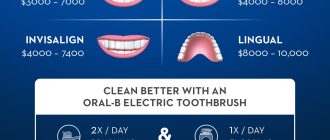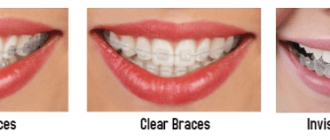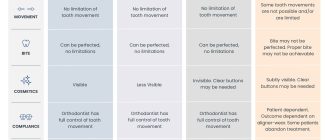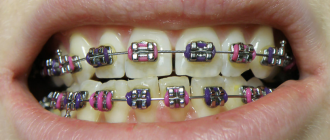Are you considering getting braces but are low on funds? Many people often wonder whether braces are covered by Medicare or the state welfare program Medicaid. Unfortunately these programs are very confusing and have a lot of requirements for eligibility. This article considers whether you can get the cost of braces to straighten your teeth paid for by Medicare or Medicaid.
What is Medicare?
Medicare in the United State is a bit like health insurance. It is not a welfare program and therefore your income and assets are not a consideration to determine whether you are eligible for benefits. It requires co-payments and deductibles, just like normal health insurance in the US. There are a number of plans which participants can enrol in including coordinated care plans, managed care plans, medical savings accounts, private fee-for-service plans and other options. The type of plan that you enrol in will depend on your personal preference and financial situation. You should research the options thoroughly before you sign up for any plan.
Are Braces Costs Covered by Medicare?
The Medicare health insurance program is a national service primarily for those who are over the age of 65. If you are permanently disabled and under this age you may be entitled to Medicare benefits as well. Part B of the Medicare program is financed by monthly premiums and covers private doctor consultations. Unfortunately there are some health benefits which are excluded from Medicare benefits. This includes dental care and vision. So unfortunately, you no Medicare beneficiary is entitled to use this program for braces or other dental care.
What is Medicaid?
Unlike Medicare, this is a national welfare program. It may vary by state but it is available for all US citizens and all lawfully admitted immigrants. Medicaid covers various groups of people and income and assets are taken into consideration for eligibility purposes. The groups that are entitled to Medicaid services include pregnant women, children and teenagers and persons who are aged, blind or disabled. Those with very high medical bills in these circumstances may still be entitled regardless of their earning potential and worth. If you require braces and are unable to pay for them and you do not have health insurance, then Medicaid may be an option for you.
Is the Cost of Braces Covered by Medicaid?
Even though Medicaid is a national program, many states have differing requirements which need to be met before dental care or braces are offered to a Medicaid recipient. In many places braces are only offered to children. In some states, children are classified as persons under the age of 18 years, whereas other states define a child as being 21 years or younger. In addition to the age requirement there are other eligibility requirements in relation to the cost of brace including the extent of your teeth problems and malocclusion.
Many states require a certain degree of malocclusion before they will pay for orthodontic services. A malocclusion is when the teeth are misaligned or where there is incorrect relationship between the teeth of the two dental arches or where both of these problems are present. Many states base their eligibility on a scoring system. Patients will be deemed to require orthodontics if they reach a certain score. Most orthodontic treatments require prior authorization from Medicaid. Most states will only pay the cost of braces where the patient has a cranio-facial deformity. This includes cleft palate, cleft lip and other medical conditions which result in handicapping malocclusion.
If you require braces only for aesthetic or cosmetic reasons, then Medicaid will not provide the funding. This includes patients who merely have crowded or crooked teeth, overbite, underbite or spacing problems. There needs to be a minimum degree of deformity. If you believe your child has a handicap or disability from malocclusion then you should contact a Medicaid officer or an approved Medicaid orthodontist in order to assess your case.
Should I Apply for Medicaid to Pay for My Braces?
Medicaid services do include dental work. However, as discussed above, there are certain requirements which need to be met and also you need to be within the qualifying groups. Firstly, you need to be a US citizen or a lawfully admitted immigrant. If you are neither, then your child may still be eligible for coverage if he/she falls within one of the groups. The state will consider your child’s status and not yours, the parent’s. A five year limit applies before services are provided for lawful permanent residents. If you have a child living with you then that child may still be eligible for braces even though you do not qualify for Medicaid coverage. This is because Medicaid will not assess your income and resources for the purposes of determining eligibility for that child.
With any Medicaid application, the state will consider your income and resources. This includes your bank accounts, real property and other personal items which could be sold for cash. As to whether your income and assets are above the Medicaid limit, this will depend on which group you fall under and which state you reside in. The entitled groups include women who are pregnant, including married and single women. Both the woman and child will be covered by Medicaid if they meet the other tests. As for children and teenagers, parents or guardians of children who are under 18 years (or 21 in some states) may apply to Medicaid to pay the costs of braces on behalf of their child. Your state may allow you to apply on your own behalf if you are a teenager and living on your own. Medicaid may also apply to persons who are 65 years or older, disabled or blind. Coverage may also apply to persons who are leaving welfare and are in need of medical/dental services.
You should apply to Medicaid if you belong to any of these groups, even if you are not receiving a welfare check. If you believe that your income and resources are too high but you have very high medical bills, then you still may be eligible. Either way it would be worthwhile to see a Medicaid officer to ask if Medicaid will cover your braces costs.
The cost of braces can be prohibitive to many, especially those with limited income and resources to pay for their dental health. Unfortunately you will not be able to rely on Medicare to cover the price of your braces, even if you are over the age of 65. If you fall within one of the Medicaid groups and your income and assets are limited, then you may be able to get the cost of braces paid for by Medicaid.
There are government websites which can help you to see if you are eligible. This includes the GovBenefits and BenefitsCheckUp websites. Even though you may fall within one of the Medicaid groups and you have limited earnings and assets, you may still not be entitled to get the cost of braces paid under Medicaid. This would be the case where your orthodontic needs are for aesthetic purposes only. In any case, you should still check out whether you would be eligible by contacting a Medicaid services officer or talking to your dentist or orthodontist. There may be a chance that your braces could be covered.






